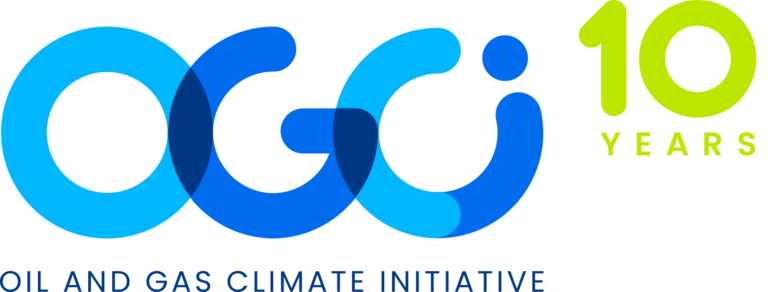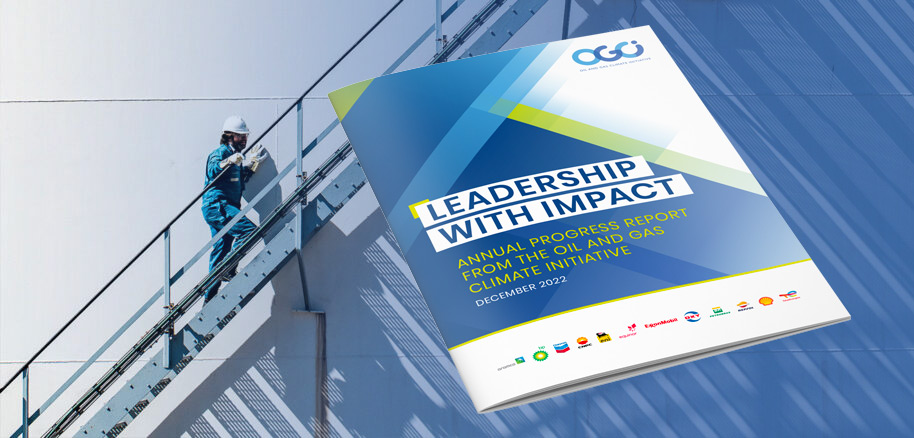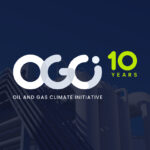- OGCI members’ absolute upstream methane emissions down 40% since 2017 – equivalent to taking over 3 million cars off the road for a year1
- OGCI’s industry-wide Aiming for Zero Methane Initiative launched in March already has 60 signatories and supporters
- OGCI members involved in over 30 of around 50 carbon capture hubs proposed or in development globally with the first expected to start up in Norway in 2024
LONDON, December 8 2022 – The 12 member companies of the Oil and Gas Climate Initiative (OGCI) reduced their upstream emissions, launched an industry-wide initiative to cut methane emissions to near zero and increased investment and activities in low-carbon technologies that will support broader decarbonization efforts.
The group’s annual Progress Report, published today, showed that OGCI members reduced absolute upstream methane emissions by 40% and carbon emissions by almost a fifth since 2017. In 2021, OGCI members’ spending on low-carbon solutions almost doubled compared with 2020, totalling $40 billion since 2017.
The progress comes as the OGCI has expanded work to support the development of industrial hubs where carbon dioxide is captured and stored.
OGCI Executive Committee Chair Bjorn Otto Sverdrup said: “Eliminating methane emissions from oil and gas is one of the quickest ways to meet the Paris Agreement targets and OGCI members have already shown strong industry leadership on this important issue.
“But we are not stopping there – time is limited and we need many different solutions to meet net zero. Carbon capture will also play a critical role and OGCI is supporting global efforts to scale up this vital technology across a number of industrial hubs as well as in the shipping industry.”
He added: “2023 will be critical to demonstrate the power of the oil and gas industry to deliver an energy transition that balances energy security and affordability with the urgency to address climate change and I’m pleased to share the progress OGCI has made translating ambition into action under the three pillars of our strategy.”
In 2022, OGCI focused on translating its three focus areas into tangible action.
1. Toward net zero operations
The OGCI’s 12 member companies all share the ambition to achieve net zero at their operations in line with the Paris Agreement goals and are working to support partners at non-operated assets to do the same.
This includes a target to reduce upstream carbon intensity to 17kg of CO2 equivalent per barrel of oil equivalent by 2025 – a 26% reduction from 2017. OGCI members collectively have already exceeded expectations – reaching 18.9kg of CO2e/boe in 2021.
In 2021, OGCI members met a target to reduce methane intensity from upstream operations to below 0.2% by 2025. This was achieved through activities that included expanding leak detection and repair campaigns, reducing flaring and venting and replacing or upgrading high-emitting devices.
2. Leading the oil and gas industry
In March, OGCI launched the Aiming for Zero Methane Emissions Initiative to encourage the oil and gas industry to treat methane emissions as seriously as it treats safety and aim for near zero methane emissions by 2030.
The initiative now has over 60 signatories and supporters and complements other important efforts in this area including the Methane Guiding Principles and the Oil & Gas Methane Partnership 2.0 to improve monitoring, measurement, reporting and transparency.
The OGCI expects to release results of a pilot satellite monitoring, detection and mitigation programme covering six oil fields in Iraq and has now extended the campaign to Kazakhstan, Algeria and Egypt. In addition, OGCI is exploring expanding the project to focus on global assets that emit the largest volumes of methane.
3. Acting to help decarbonize society
This past year, OGCI has moved ahead with efforts to help decarbonize heavy industry and transport.
It is working with partners across industry and government to develop carbon capture hubs. This will enable many different industries to decarbonize, reducing emissions while safeguarding jobs and creating opportunities in new low-carbon technologies.
OGCI member companies are involved in over 30 of around 50 carbon capture hubs proposed or in development globally. In the transport sector, OGCI is working with industry partners on the next stage of a pilot project to demonstrate the potential of carbon capture and storage for marine shipping – another key area for global emissions reductions.
OGCI Climate Investments
OGCI Climate Investments celebrated its fifth anniversary in 2022. Climate Investments, which invests in low-carbon solutions, has 29 portfolio companies. It is now expanding its reach to support later-stage companies as they scale up their innovative decarbonization solutions, moving beyond the $1 billion-plus fund Climate Investments manages for OGCI.
[1] Source: EPA’s GHG equivalencies calculator
The Oil and Gas Climate Initiative is a CEO-led organization bringing together 12 of the largest companies worldwide to lead the oil and gas industry’s response to climate change. It aims to accelerate action towards a net zero emissions future consistent with the Paris Agreement. Together, OGCI member companies represent almost 30% of global oil and gas production.
OGCI members set up OGCI Climate Investments to create a US$1 billion-plus fund that invests in companies, technologies and projects that accelerate decarbonization within energy, industry, built environments and transportation. Combined, OGCI members have invested more than US$35 billion in low carbon solutions over the past five years.
OGCI members are Aramco, bp, Chevron, CNPC, Eni, Equinor, ExxonMobil, Occidental, Petrobras, Repsol, Shell and TotalEnergies.





